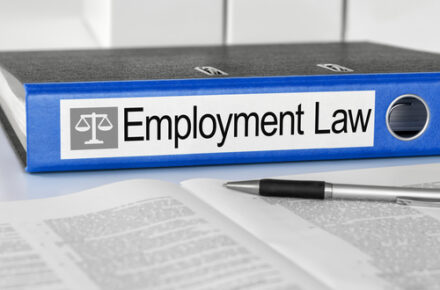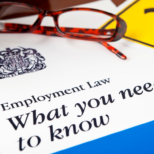
Receiving an employment tribunal claim: what to do next
10th February 2022 by Alana Penkethman
‘As an employer, it’s likely that at some point, you will receive a tribunal claim from an employee, former employee or even an applicant,’ says Alana Penkethman, an Associate in the employment team with Laceys.
‘Although a tribunal claim can seem daunting, knowing what to expect will help you defend the claim as effectively as possible.’ Alana runs through what happens at the start of the process, sets out what to do to help prepare the defence, and gives tips on how to keep legal costs as low as possible.
Acas early conciliation
An employment tribunal claim usually does not come out of the blue. In most cases, the employee will have contacted Acas first to explore early conciliation. Early conciliation lasts up to six weeks, during which time Acas mediate between you and the individual to try to settle the potential claim against your business. If conciliation is unsuccessful, the individual is issued a certificate. Without this, they cannot bring a claim. The door to settlement does not close after that; you can still negotiate through Acas or directly with the individual or their representative.
Receiving the claim
If the individual decides to bring a claim, they do not have to send it to you, instead they should send it to the tribunal. The tribunal will send you the claim form (called an ET1), often with an attachment setting out the claim in more detail. You will also receive a letter informing you of the date by which you have to submit a response and the form you need to fill in and return to the tribunal (called an ET3).
Deadlines, deadlines, deadlines
It is crucial to check the deadline on the letter for sending your ET3 to the tribunal. This will be 28 calendar days from the date the ET1 was sent to you.
What happens if the response is late?
Tribunals are strict about the deadline. Miss it and you risk the tribunal deciding that your ET3 is not admissible. This usually means that your side of the story does not get heard.
Can I ask for extra time?
You can apply to the tribunal for an extension of time at any point, but the earlier the better. There is no guarantee that it will be allowed, as the tribunal will consider the fairness of the request and why you could not meet the deadline. We can help you put forward the strongest reasons.
Preparing to defend the claim
To defend your business as robustly as possible, we strongly recommend getting in touch as soon as you have received the claim. It is important that the detailed response to the claim (known as the grounds of resistance) is consistent with the paperwork that the tribunal examines later at the hearing. Collect and send us the relevant documents and emails so that we can ensure the response tallies with these.
Getting the response right
The ET3 form and grounds of resistance need to be completed carefully. These set out your side of the story and should address all the allegations in the claim. This is the backbone to your case, and you will be held to it by the tribunal. We can draft this to best protect your business.
It may be necessary to admit some elements of the claim which cannot realistically be defended, for example where a clear error was made in the calculation of notice pay. Tribunals may strike out part of a response if there is no reasonable prospect of successfully defending it. You also risk having to pay costs to the claimant for trying to defend the indefensible.
Can I delete unhelpful emails?
During the course of proceedings, the tribunal will require the parties to disclose all relevant documents to each other. This includes documents that are not favourable to your case. When tribunals refer to documents, this has a wide meaning and includes emails, notes from meetings, audio recording, texts, social media posts. These should be saved, regardless of whether they are helpful or not.
Working effectively with your solicitor
Here are a few pointers to working effectively together, which can help keep costs down:
- get in touch as early as possible – we will need input from your business into preparing the response and it can take time to get it right;
- select one manager as the main point of contact to liaise with the solicitor, and take into account that dealing with the claim will increase the manager’s workload;
- check the key information in the claim form, for example the claimant’s start and leaving dates; and
- have the key documents ready to send to your solicitor, for example in a conduct dismissal case this will include the investigation report, dismissal letter and any documents relating to the appeal.
How we can help
Using our extensive experience of defending employment tribunal claims, we will defend the claim in an effective and pragmatic way. Please contact Alana in the employment team on 01202 377 872 or email a.penkethman@laceyssolicitors.co.uk for further help.
This article is for general information only and does not constitute legal or professional advice. Please note that the law may have changed since this article was published.



